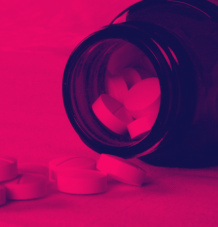WHO updates COVID treatments
 The World Health Organization (WHO) has updated its treatment advice for high-risk COVID-19 patients.
The World Health Organization (WHO) has updated its treatment advice for high-risk COVID-19 patients.
A treatment combining two antibodies (casirivimab and imdevimab) is recommended for two specific groups of patients with COVID-19 by a WHO Guideline Development Group (GDG) panel of international experts and patients.
The first are patients with non-severe COVID-19 who are at highest risk of hospitalisation, and the second are those with severe or critical COVID-19 who are seronegative, meaning they have not mounted their own antibody response to COVID-19.
The first recommendation is based on new evidence from three trials that have not yet been peer reviewed, but show that casirivimab and imdevimab probably reduce the risk of hospitalisation and duration of symptoms in those at highest risk of severe disease, such as unvaccinated, older, or immunosuppressed patients.
This second recommendation is based on data from the RECOVERY trial showing that casirivimab and imdevimab probably reduce deaths (ranging from 49 fewer per 1,000 in the severely ill to 87 fewer in the critically ill) and the need for mechanical ventilation in seronegative patients.
For all other COVID-19 patients, the experts say any benefits of this antibody treatment are unlikely to be meaningful.
Casirivimab and imdevimab are monoclonal antibodies that when used together bind to the SARS-CoV-2 spike protein, neutralising the virus’s ability to infect cells.








 Print
Print